
All categories
Featured selections
Trade Assurance
Buyer Central
Help Center
Get the app
Become a supplier

(1155 products available)

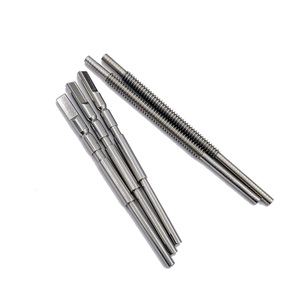

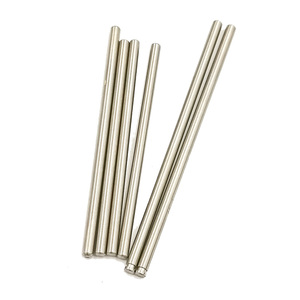
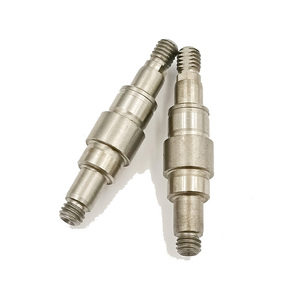



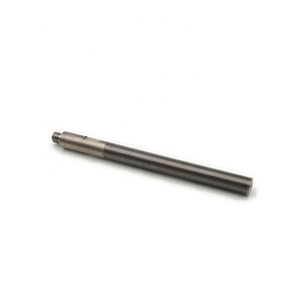

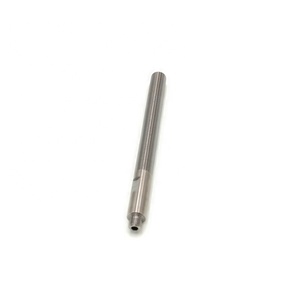














A deep hole shaft refers to a cylindrical component with a significant length-to-diameter ratio. Industries requiring deep holes in shafts use various methods to craft them, which can be complex and demanding. Besides, the following four types of deep hole shafts are functional, precision, foam, and funnel deep hole shafts.
Functional deep hole shafts
Functional deep hole shafts have a specific function, such as serving as a handle for a tool or an opening for a locking mechanism. Functional deep hole shafts may incorporate other features, such as grooves or notches, to enable fastening or a better grip.
Precision deep hole shaftsp>
Precision deep hole shafts are often manufactured using CNC (Computer Numerical Control) machines. This type of deep hole shaft is made from high-quality metals and is commonly used in mechanical and automotive industries. The precision deep hole shafts with holes and threads meet specific tolerance and measurement requirements.
Foam deep hole shafts
Foam deep hole shafts consist of a lightweight foam material. This type of deep hole shaft is widely used in theater and film production to create props and special effects. Besides, the deep hole shafts can also be applied to sports for training and rehabilitation purposes.
Funnel deep hole shafts
Funnel deep hole shafts are shaped like a funnel or cone. This type of deep hole shaft is commonly used in mixing and manufacturing industries. Also, it is found in food and beverage production to facilitate the transfer of materials and liquids into containers or machinery.
Deep hole:
The central feature of a deep hole shaft. The length and diameter can vary depending on the application. It's also called the deep hole channel or bore. Up to 25 ft (7.6m), some industrial applications can reach extreme lengths.
Deep hole diameter:
Typically ranging between 0.125 in (0.32cm) and 20 in (50.8cm) up to 0.75 cm. The diameter will be larger for industrial sectors that require larger machined parts.
Materials :
Deep hole shafts can be made from various materials, including plastics, ceramics, and metals. Deep hole metal shafts are preferable when strength or temperature extremes are important. Carbon steel deep holes are popular for machinery. Deep hole stainless steel shafts work well in demanding environments where corrosion is a risk.
Length tolerance:
Achieving length tolerance is crucial for fitting into other machined pieces. Using hydraulic deep hole drilling machines helps achieve ± 0.1 mm or better.
Diameter tolerance:
Like length tolerance, diameter tolerance is crucial for exactly matching dimensions. Using hydraulic deep hole drilling machines helps achieve ± 0.1 mm or better.
Surface finish:
Deep-hole shafts can have a variety of surface finishes, including polished, brushed, or matte. The surface finish not only adds to the shaft’s appearance but also affects its functionality.
Regular inspection:
Regular inspection is important to identify potential early failures and to take preventive action. Examine the deep hole shafts to identify the following:
The key structural components are cracked or deformed. Doing this will help identify operational faults early.
Inspect the deep hole shaft for wear, especially on areas that rub against bearings or seals. Deep hole shafts that have been worn excessively will be less efficient, and parts that fit tightly will be looser.
Identify any corrosion on the surface of the deep hole shaft. This will help prolong the lifespan of the deep hole shaft and the machinery it’s used in.
Replace parts that are found to be worn beyond acceptable limits. If not, the whole machine risks being damaged further and could stop production.
Lubrication:
If deep hole shafts are not well-lubricated, friction can increase, which will reduce the efficiency of the machinery and shorten the lifespan of moving parts. Lack of lubrication could also lead to deep hole shafts becoming damaged.
Lubrication is important to the deep hole shaft’s bearings. Deep hole drilling shafts usually have grease fittings to allow for easy and regular lubrication.
The application of deep hole shafts can be found in industries that require long, narrow imperfections to be created in metals and other solid materials. Deep hole drilling is the machining process that creates such holes and is then supported by deep hole shaft machines, such as boring bars and gun drills.
One common area where deep hole shafts are applied is in the manufacturing of metal shafts for the automotive industry. Every vehicle that exists has an engine, and to create the engine, deep hole drilling must be employed to make the cylinder of the engine. Deep hole drilling creates slender cavities for the pistons to move up and down.
Another area where deep hole shafts are used is in the medical field, where medical devices are manufactured. Medical devices like cannulas or components like stents and guide wires need deep holes to be made in them to aid functionality.
Deep hole shafts are also used in the oil and gas industry, where a lot of core sampling is done to extract oil or natural gas from the ground. The deep hole drilling technique is used to make large-diameter holes in pipeline fittings and valves.
Deep hole shafts may also be used in the aerospace industry. In aerospace engineering, deep hole drilling shafts are employed when making assemblies, fuselages, or airframes of the aircraft. The deep hole drilling technique is also used to make lightweight structural components like honeycomb patterns.
Needs assessment
When buying deep hole shafts, the first step is to evaluate business requirements thoroughly. Consider the applications to be used and the machines that will use the deep hole shafts. Look at the material that will need to be drilled and the size and depth of the holes required. This will help determine what type of deep hole drilling shaft is needed for the job.
Drilling methods
Deep hole shafts use different drilling methods, like BTA, gun drilling, or eccentric, which produce varying results. Research each drilling technique carefully and consider which one will work best for the applications. Be aware that the deep hole drilling method also determines the design and shape of the drilling shaft.
Quality and precision
Even though deep hole shafts are usually made of sturdy materials, quality can still differ between suppliers. Look for suppliers who drill deep holes with precision and control. Ensure the deep hole shafts are well-made, and ask about any quality assurance and testing practices the seller has. If possible, inspect the deep hole shafts before buying them in bulk.
Compatibility
Deep hole drill bits must be compatible with the machines they are used with. When selecting deep hole shafts, it is critical to confirm that they will work with the existing equipment. Verify the specifications and ensure a suitable match, as this will enable smooth operation and effective performance.
Cost
Deep hole shafts are significant investments, so it is necessary to stay within the budget while still meeting the operational drilling needs. Compare offers in terms of costs, but most importantly, examine the value provided by the deep hole shaft. Balance costs, and select a supplier that optimally combines performance and price.
Q1: What are the latest technologies in deep hole drilling shafts?
A1: The latest technologies include direct flushing and gun drilling, single and double tube, ultrasonic cleaning technology and high precision, coupling and insert sol-gel technology.
Q2: How does deep hole drilling work?
A2: Deep hole drilling works by the tool moving through the workpiece to form holes of different diameters and designs. The tool then flushes out the chip with cutting fluid.
Q3: What is a deep hole drilling machine used for?
A3: A deep hole drilling machine creates straight and deep holes with a high degree of accuracy. It also makes blind holes, cross holes and tapered holes.
Q4: What are the advantages of deep hole drilling?
A4: Deep hole drilling has the benefits of lowered manufacturing costs, fast production rate and high accuracy. It can also create internal grooves and cavities in a workpiece.
Q5: What are the types of shafts used for deep hole drilling?
A5: The types of shafts used for deep hole drilling include spiral flute, solid, floating, ball and roller cages. The solid deep hole spiral shaft is the most common type.